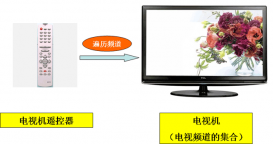本文实例讲述了smarty模板的使用方法。分享给大家供大家参考,具体如下:
这里以smarty3为例
首先, 在官网下载smarty3模板文件,然后解压。
在解压之后的文件夹中,libs是smarty模板的核心文件,demo里面有示例程序。
我们把libs文件夹复制到我们的工作目录,然后重命名为smarty。

假设我们在controller目录下的index.php中使用smarty模板。
index.php
|
1
2
3
4
5
6
7
8
9
10
11
12
13
14
15
16
|
<?phprequire '../smarty/Smarty.class.php';$smarty = new Smarty;$smarty->debugging = false; //开启debug模式$smarty->caching = true; //开启缓存$smarty->cache_lifetime = 120; //缓存时间$smarty->left_delimiter = '<{'; //左定界符$smarty->right_delimiter = '}>'; //右定界符$smarty->template_dir = __DIR__.'/../view/'; //视图目录$smarty->compile_dir = __DIR__ . '/../smarty/compile/'; //编译目录$smarty->config_dir = __DIR__ . '/../smarty/configs/'; //配置目录$smarty->cache_dir = __DIR__ . '/../smarty/cache/'; //缓存目录$list = range('A', 'D');$smarty->assign("list", $list);$smarty->assign("name", "zhezhao");$smarty->display('index.html'); |
模板文件index.html
|
1
2
3
4
5
6
7
8
9
10
11
|
<html><head> <title></title></head><body> <p><h1><{$name}></h1></p> <{foreach $list as $k=>$v }> <p><h1><{$k}> : <{$v}></h1></p> <{/foreach}></body></html> |
上述方法的优点是使用起来配置比较简单,缺点也是显而易见的,我们controller目录下可能有很多页面调用smarty模板,在每个页面都需要将上述方法配置一遍。
解决方法有两种:
将smarty模板的配置信息写到一个文件中,然后其他页面可以通过包含该文件使用smarty对象。
|
1
2
3
4
5
6
7
8
9
10
11
|
require '../smarty/Smarty.class.php';$smarty = new Smarty;$smarty->debugging = false; //开启debug模式$smarty->caching = true; //开启缓存$smarty->cache_lifetime = 120; //缓存时间$smarty->left_delimiter = '<{'; //左定界符$smarty->right_delimiter = '}>'; //右定界符$smarty->template_dir = __DIR__.'/../view/'; //视图目录$smarty->compile_dir = __DIR__ . '/../smarty/compile/'; //编译目录$smarty->config_dir = __DIR__ . '/../smarty/configs/'; //配置目录$smarty->cache_dir = __DIR__ . '/../smarty/cache/'; //缓存目录 |
我们自己编写一个类,继承自Smarty类,然后将配置信息写在构造函数中。
我们编写mySmarty类
|
1
2
3
4
5
6
7
8
9
10
11
12
13
14
15
16
|
<?phprequire '../smarty/Smarty.class.php';class mySmarty extends Smarty{ public function __construct(array $options = array()){ parent::__construct($options); $this->debugging = false; //开启debug模式 $this->caching = true; //开启缓存 $this->cache_lifetime = 120; //缓存时间 $this->left_delimiter = '<{'; //左定界符 $this->right_delimiter = '}>'; //右定界符 $this->setTemplateDir(__DIR__.'/../view/'); //视图目录 $this->setCompileDir(__DIR__ . '/../smarty/compile/'); //编译目录 $this->setConfigDir(__DIR__ . '/../smarty/configs/'); //配置目录 $this->setCacheDir(__DIR__ . '/../smarty/cache/'); //缓存目录 }} |
此时,controller里面的index.php代码可优化为:
|
1
2
3
4
5
6
7
|
<?phprequire 'mySmarty.php';$smarty = new mySmarty;$list = range('A', 'D');$smarty->assign("list", $list);$smarty->assign("name", "zhezhao");$smarty->display('index.html'); |
最后送上福利:smarty3 chm官方文档。
希望本文所述对大家基于smarty模板的PHP程序设计有所帮助。
原文链接:https://blog.csdn.net/koastal/article/details/51423125













